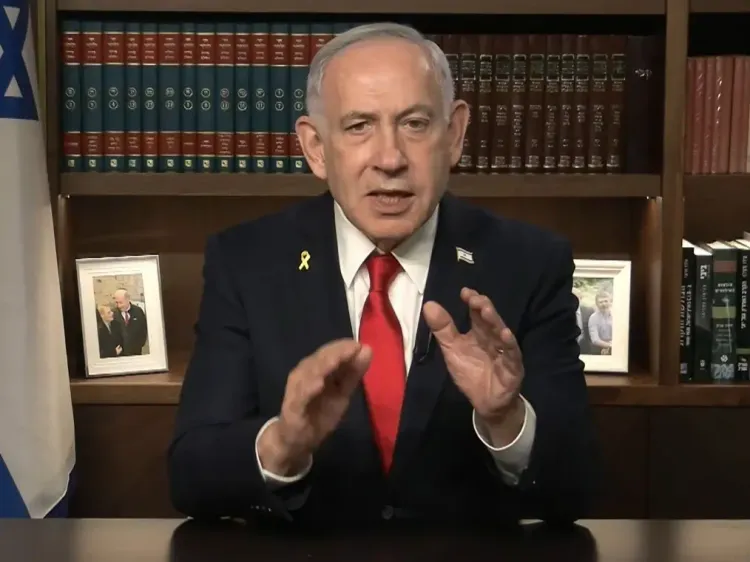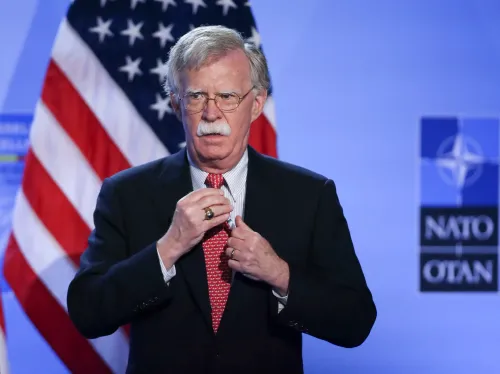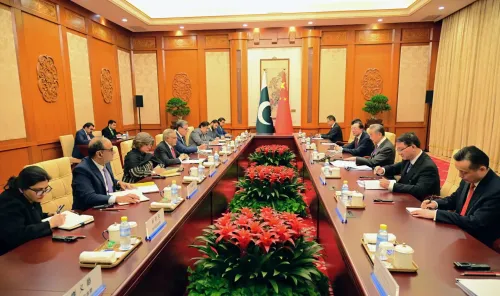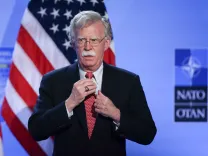Is Netanyahu Right to Condemn UK, Canada, and Australia for Recognising Palestine?

Synopsis
Key Takeaways
- Netanyahu's Stance: Strong opposition to Palestinian statehood.
- International Backlash: Criticism of recognition by key allies.
- Settlements Expansion: Commitment to expanding Jewish settlements in the West Bank.
- U.S. Sanctions: Recent U.S. measures against the Palestinian Authority.
- Future Determination: Netanyahu emphasizes that Israel's future will be decided in Jerusalem.
Jerusalem, Sep 22 (NationPress) Israeli Prime Minister Benjamin Netanyahu has sharply criticized Britain, Canada, and Australia following their decision to formally acknowledge a Palestinian state, accusing these nations of "rewarding terror" in the wake of the Hamas attack on October 7. He firmly stated that Israel will never permit the establishment of a Palestinian state west of the Jordan River.
"There will be no Palestinian state. The response to the latest attempt to impose a terror state in the heart of our land will be articulated after my return from the United States," declared Netanyahu.
Addressing the leaders of the three nations, he asserted, "I have a clear message for those governments recognizing a Palestinian state after the horrific massacre of October 7: You are rewarding terror with a significant prize. And let me stress this: It will not happen. There will be no Palestinian state to the west of the Jordan River."
Reaffirming his long-standing opposition to Palestinian statehood, Netanyahu emphasized his dedication to expanding Jewish settlements in the occupied West Bank.
"For years, I have successfully prevented the establishment of that terror state despite immense pressure from both domestic and international fronts. We have done this with determination and astute leadership. Moreover, we have doubled the Jewish settlement in Judea and Samaria, and we shall continue on this path," he stated.
The recognition of Palestine by Britain, Canada, and Australia is part of a broader international push to revive momentum for a two-state solution, although this decision has faced strong criticism from both Israel and the United States.
Israeli Foreign Minister Gideon Sa'ar also denounced this move, labeling it a significant misstep.
"Many countries around the world have previously recognized a Palestinian state. This was a mistake then, and it remains a mistake now. Those governments that decided to join this recognition at this time are committing an immoral and outrageous act," he remarked.
Sa'ar contended that such recognition, occurring while Israel is engaged in a military operation against Hamas, will be remembered as disgraceful.
"The governments that chose to act after October 7, while Israel is still fighting a challenging military campaign against Hamas and its allies, will be marked with eternal shame. This is a reward for Hamas and a justification for terrorism. It is also an unjustified accolade for the Palestinian Authority," he stated.
He further highlighted recent U.S. sanctions against the Palestinian Authority, accusing it of incentivizing terrorism through financial support to convicted attackers.
"Recently, the U.S. implemented measures against the PA and its leaders due to their ongoing policy of rewarding terrorists by providing them salaries. I am heartened by the reactions from the opposition in the 'recognizing countries' that firmly oppose their governments' actions, viewing them as erroneous and misguided. We still have many allies in these nations as well," he added.
Emphasizing that Israel's sovereignty would not be compromised by external pressures, Sa'ar concluded, "The assurance that a Palestinian state will not be created -- and it will not -- comes from the opposition of the Israeli populace. The majority of our nation stands firmly against this delusional concept."
"Our future will not be decided in London or Paris; it will be determined in Jerusalem. We will continue to fight resolutely on the diplomatic front against initiatives that threaten Israel and its future. Our friends globally will stand by us, with the United States leading the way. The eternity of Israel is not in question!" he concluded.










